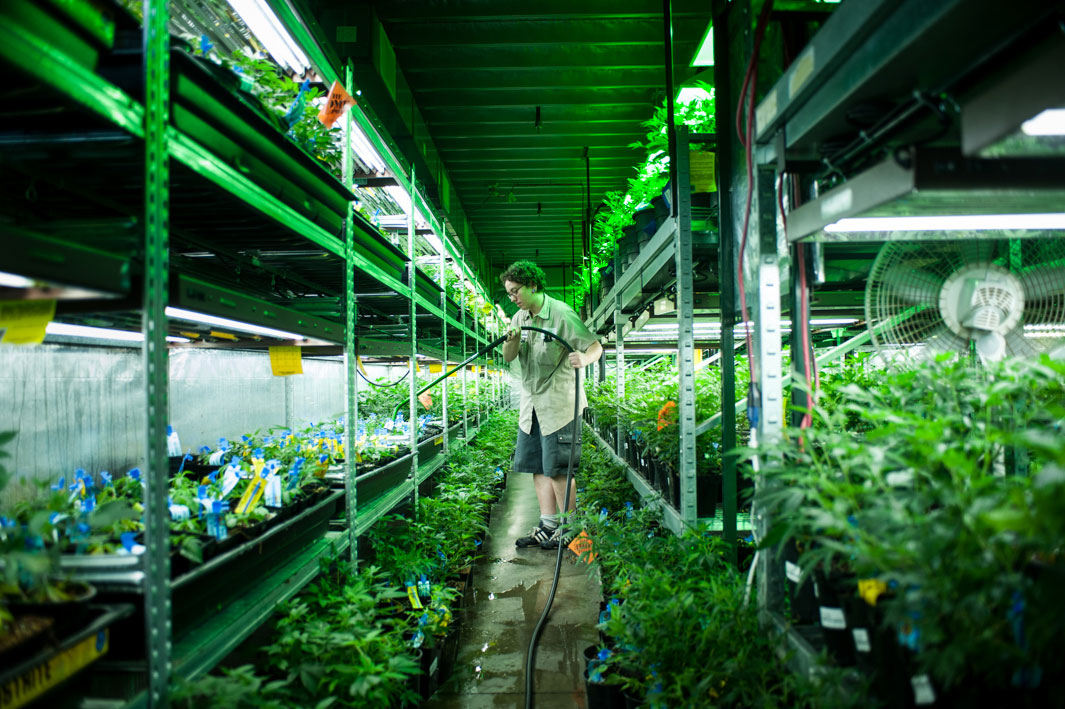Illegal Canadian cannabis dispensaries seen as safe, reliable: UBC study
Medical-cannabis patients who use illegal cannabis dispensaries instead of turning to other legal and black-market sources do so because they feel safe at these shops and like that they have reliable supplies of the specific strains they want, according to new research from the University of British Columbia.
Rielle Capler, a PhD student and the study’s lead author, said the results can help give Ottawa and provincial governments an idea of what consumers want as they look toward legalizing the drug some time next year.
“We’ve seen that dispensaries are part of the legal system in other jurisdictions, in the States where they have legalized cannabis for recreational purposes, and we’ve had a natural experiment, in a way, going on in Canada for the past 20 years,” said Ms. Capler, who started working with the B.C. Compassion Club Society in 1999 before going into academia. “So we’re hoping that this research can help inform governments as they consider what distribution will look like after legalization and take into account the patient and user’s perspective.”
Ms. Capler’s team surveyed 445 self-identified adult medical-cannabis users and found those who visited dispensaries (215) were more likely to be older Canadians living with HIV/AIDS or arthritis. The study, published in the September issue of the International Journal of Drug Policy, also showed that roughly 90 per cent of those that went to dispensaries rated these shops “good” or “very good” on a range of topics including quality of products, safety, efficiency availability of cannabis and whether they felt respected.
The price of pot at these illegal dispensaries – which for the most part has remained on par with Health Canada’s medical mail-order system in recent years – was the only category where dispensaries didn’t outperform other ways of getting cannabis: buying from a friend, growing it legally yourself,

having someone else grow it for you legally, purchasing from a street dealer and ordering it from a federally approved commercial grower.
The study mostly involved participants from British Columbia and Ontario and relies on interviews from 2011 to 2012, before the medical-cannabis laws were twice overhauled. During that time, just one company – Prairie Plant Systems – provided this legal medicine and just a dozen or so illegal dispensaries were operating across the country.
Still, Ms. Capler argues, these are the options still available to cannabis patients, albeit at a much larger scale with the explosion in both licensed producers and illegal cannabis shops.
Ms. Capler said new research is forthcoming on how and why people are using Vancouver’s dozens of dispensaries as legalization approaches.
The federal cannabis legislation unveiled earlier this year left the question of where cannabis may be sold entirely up to provinces and municipalities. This could mean, as with alcohol sales, that consumers across Canada might have vastly different ways of buying recreational marijuana.
A federal task-force report informing the government’s legalization push recommended against selling the drug in liquor stores, noting concerns that mixing alcohol and marijuana leads to higher levels of intoxication.
But politicians in British Columbia, Manitoba and Ontario floated the idea of selling cannabis at such government-run outlets and have voiced their displeasure with the scofflaws running cannabis shops in their provinces.
Canada’s several hundred dispensaries all operate outside the federal government’s medical-marijuana program, which permits about 40 industrial-scale growers to sell dried flowers and bottles of cannabis oil directly to patients through the mail.
The UBC study also found that dispensary customers were more likely to have discussed cannabis with their doctors and received authorization from Health Canada to use the drug. Ms. Capler said 2013 research from a UBC team led by Prof. Zach Walsh found about 75 per cent of those authorized by the government to use medical cannabis also visited dispensaries.
SOURCE: The Globe & Mail

Leave A Reply